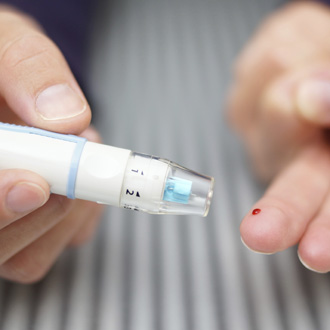
Dr Stephen Lawrence – Take the patient’s word for it, but arrange a follow-up appointment
If the patient verbally confirms that they will notify the DVLA, you should take their word for it – even if their body language or tone of voice suggests otherwise. After all, no matter how many times you’ve cared for the patient, you could be misinterpreting their signals.
Technically, their verbal confirmation discharges you from responsibility. However, if you are still suspicious, arrange a follow-up appointment, and at this point you can review whether or not they have notified the DVLA. It’s good practice to do this anyway, to check their condition. Referring to the DVLA guidance for drivers dependent on insulin might be helpful.
If you then find that the patient hasn’t done what they said they would, don’t ignore the situation – that could mean you are potentially colluding with the patient.
Give them every opportunity to inform the DVLA themselves, but if they won’t, you should disclose the information.
Explain to the patient that if you don’t, they may put others at risk.
There’s an increased likelihood of the patient having another hypoglycaemic episode after they’ve had this one – patients lose awareness of impending hypoglycaemia the more attacks they have.
As patients who drive and take insulin are obliged to inform the DVLA of this, the DVLA could ask for a report about how well the diabetes is being controlled, so you’d have to tell them about any episodes then.
Dr Stephen Lawrence is the clinical lead for diabetes at the RCGP and Diabetes UK

Dr Jessica Garner – Write to the patient
Driving is such a huge part of modern society that being unable to do so can have huge ramifications. Taking such a vital tool away from someone is no small matter and should always be handled sensitively and carefully.
DVLA guidance states that car drivers must not have had more than one episode of hypoglycaemia requiring the assistance of another person in 12 months, so in the appointment, make sure you have carefully and but emphatically explained the ramifications of continued driving. Try to make the patient understand that it poses a risk to others as well as to him.
If he verbally agrees to inform the DVLA, give him the benefit of the doubt. Then write to him, explaining your standpoint and stating that if he doesn’t inform the DVLA, you are obliged to do so. Book him in for a follow-up appointment or visit him, suggesting it is a routine check-up and ask whether he has spoken to the DVLA. If he hasn’t, discuss his work and social situation. It may be that he is worried he would lose his job, or he may have dependents who rely on him for transport.
Ultimately, if he refuses to tell the DLVA about his medical problems, it is your duty to inform them. This is in line with GMC guidance. Explain that this is what you plan to do, and watch to see whether this encourages him to finally report the issue.
Dr Jessica Garner is a GP in Worcestershire

Dr Wyn Parry
Contact the patient’s friends and family
There is a real risk to safety here – for the driver, other road users and pedestrians.
Legally, it’s the responsibility of the licence holder to inform the DVLA of any condition that may affect safe driving. Sometimes, as in this situation, it won’t be clear whether the driver will make a declaration and you have a difficult decision to make if you suspect this to be the case.
Refer to the GMC’s guidance on confidentiality and on reporting concerns to the DVLA.¹ This advises that the GP re-emphasises to the patient that their medical condition, in the interests of road safety as well as the law, requires the DVLA to be notified. Failure to notify could also nullify his car insurance.
The guidance also suggests that if the patient refuses to accept that he may be unsafe to drive, a second opinion may be sought. With the patient’s agreement, try to instigate a discussion with friends, relatives or carers as they may be able to persuade the patient to inform the DVLA about the situation if you can’t.
But if the patient can’t be talked around, contact the DVLA and disclose any relevant medical information, in confidence, to the medical adviser.
You could also discuss the case anonymously with the medical adviser at an earlier stage to find out how to proceed. Explain to the patient that you intend to do this, and confirm in writing once you have done so.
Dr Wyn Parry is senior medical adviser at the DVLA. You can get in touch with the DVLA’s medical advisers at [email protected] or on 01792 782337
Reference
1 Confidentiality and reporting concerns about patients to the DVLA or the DVA. gmc-uk/org/confidentiality
Pulse October survey
Take our July 2025 survey to potentially win £1.000 worth of tokens













